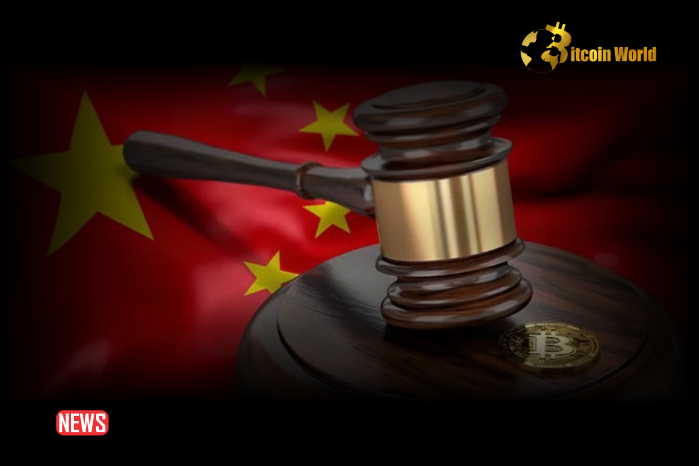Is China softening its stance on crypto? A major update to China’s Anti-Money Laundering (AML) laws now includes virtual asset transactions, marking the first significant revision since 2007. This move has sparked speculation about a potential shift in China’s approach to cryptocurrencies. Let’s dive into the details and explore what this could mean for the future of crypto in China.
China Recognizes Virtual Assets in Revised AML Laws
On August 19th, the Supreme People’s Court and the Supreme People’s Procuratorate officially recognized virtual asset transactions as potential vehicles for money laundering. This signifies a major step in acknowledging the role of digital currencies within the Chinese financial system.
Here’s a breakdown of what the revised AML laws entail:
- Inclusion of Virtual Assets: The updated laws explicitly cover virtual asset transactions, closing a loophole that previously existed.
- Stricter Penalties: Offenders can face fines from $1,400 to $28,000, depending on the severity of the offense.
- Potential Prison Time: Serious cases can lead to prison sentences of five to ten years.
- Clearer Guidelines: The laws define “serious circumstances,” such as refusing to cooperate with authorities or laundering amounts exceeding $700,000.
What are the Penalties for Virtual Asset Money Laundering in China?
The consequences for using virtual assets for illicit activities are substantial. The regulations specifically prohibit “covering up and concealing the source and nature of criminal proceeds and their benefits by other means,” leaving no room for ambiguity.
Here’s a summary of the penalties:
- Fines: Range from 10,000 Chinese yuan (approximately $1,400) to 200,000 Chinese yuan (around $28,000).
- Imprisonment: In severe cases, individuals could face five to ten years in prison.
The recent increase in money laundering prosecutions further emphasizes the urgency of these regulatory measures. In 2023 alone, 2,971 individuals were prosecuted for money laundering, a twenty-fold increase since 2019!
Could China Be Moving Towards Lifting the Crypto Ban?
The timing of these AML revisions has fueled speculation about a potential shift in China’s stance on cryptocurrency. While a complete reversal of the ban remains uncertain, some industry insiders believe that China might be exploring a more nuanced approach.
Rumors and Speculation:
- Mike Novogratz’s Prediction: The CEO of Galaxy Digital initially suggested that China might unban Bitcoin by late 2024 (though the post was later deleted).
- Justin Sun’s Cryptic Comment: The founder of Tron and Huobi (HTX) hinted at a potential unbanning with a meme-related question on social media.
Skepticism Remains:
- Yifan He’s Doubts: The CEO of Red Date Technology believes that China is unlikely to allow free Bitcoin trading using local fiat currency.
China’s history with crypto has been strict, with bans on exchanges in 2017 and crackdowns on crypto activities in 2021. The recent case in Qingdao involving the laundering of over $1.1 million through Tether (USDT) highlights the ongoing challenges in regulating virtual assets.
Key Takeaways
- China’s revised AML laws now include virtual asset transactions.
- Penalties for money laundering with virtual assets can be severe.
- Speculation about a potential crypto unban is circulating, but skepticism remains.
- China faces ongoing challenges in regulating virtual assets and preventing financial crimes.
While the future of crypto in China remains uncertain, these AML revisions represent a significant step towards recognizing the role of virtual assets within the financial landscape. Whether this leads to a complete reversal of the crypto ban or a more controlled approach remains to be seen. Stay tuned for further developments!
Disclaimer: The information provided is not trading advice, Bitcoinworld.co.in holds no liability for any investments made based on the information provided on this page. We strongly recommend independent research and/or consultation with a qualified professional before making any investment decisions.




